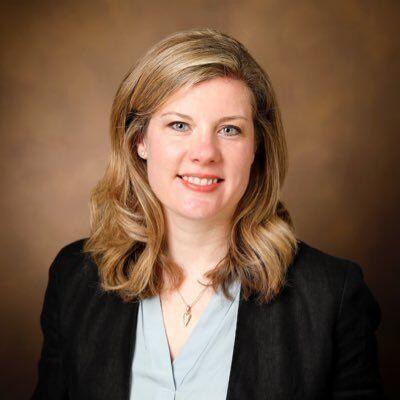
Kathryn Lindley
The new Vanderbilt University Medical Center Women’s Heart Center is an effort to connect the dots between cardiovascular care and reproductive care for women. Dr. Kathryn Lindley will serve as the first director of the center, which is set to open in September out of Vanderbilt Health 100 Oaks.
The center will strengthen collaboration between cardiology and other specialties including obstetrics and gynecology, maternal medicine, psychiatry and nutrition, Lindley said. It will also use telehealth to improve care in rural areas.
Lindley most recently established the similar Center for Women’s Heart Disease at Barnes-Jewish Hospital in St. Louis, the teaching hospital for Washington University, where she is an alumna and also served as an associate professor. She specializes in the care of reproductive-aged women, and she has researched congenital heart defects as well as how high blood pressure during pregnancy affects the heart over time.
Lindley sat down with the Post to discuss how cardiovascular disease uniquely affects women.
How does heart disease show up differently in women than in men?
While women remain at risk for essentially all of the same heart conditions that men are at risk for, women are at risk for different patterns and types of heart conditions than men are. For example, women who have gestational diabetes or high blood pressure during pregnancy — those women are at a much increased risk of developing early heart conditions over the next 10 to 20 years following pregnancy. … We know that there are certain conditions and risk factors that are really specific to women that we can key into to try to really provide optimal care for female patients.
Sometimes women tend to downplay their own symptoms because they're making their family's health their priority, rather than their own. Symptoms can go on for a while before women recognize that they're actually having cardiovascular symptoms. The other issue is that a lot of women don't actually recognize that they are at risk for heart disease. So when they have those types of symptoms, they don't recognize that they’re heart symptoms.
Why is it important that obstetrics care and cardiovascular care go hand in hand?
I think it's really important that the obstetrics and gynecology care and the cardiovascular care really be coordinated because we know women with cardiovascular disease or cardiovascular risk factors are at very high risk of having complications during pregnancy. On the flip side, women who have complications during pregnancy are at high risk of having heart conditions down the line.
Is this center a way to work on improving the dismal maternal mortality rates in Tennessee?
I think that this is going to be a really critical component to beginning to address that. We know that Tennessee is actually one of the worst states when it comes to maternal mortality, and we know that cardiovascular disease is the leading cause of maternal mortality. When we look at the reasons for those maternal deaths, we know that a lot of the reasons for those deaths come down to either provider-level issues or systems-level issues. By delivering expert care by both the cardiology and the obstetrics teams that's coordinated together, I think that will really help reduce both those systems- and provider-level issues that contribute to those maternal deaths.
It's really a good opportunity to partner together to prevent maternal deaths and illness during pregnancy and immediately after pregnancy, as well as an opportunity to identify people who are at high risk for having complications in the future, so that we can provide counseling and lifestyle modifications and medications to try to sort of change the patient's trajectory onto a healthier path and try to prevent heart disease over the long term
What drew you to this specialty?
I've always been interested in women's health and as a medical student I strongly considered becoming an obstetrician, but I ultimately decided to become a cardiologist. After I went into cardiology, I wanted to find a way to reconcile my interest in obstetrics and women's health. And so I just decided to forge a career caring for reproductive-age women, which was an area of cardiology that was underserved. There just wasn't a lot of expertise in that area; there wasn't a lot of data in terms of how we should be caring for those patients. It was an opportunity to really advance care for women.


